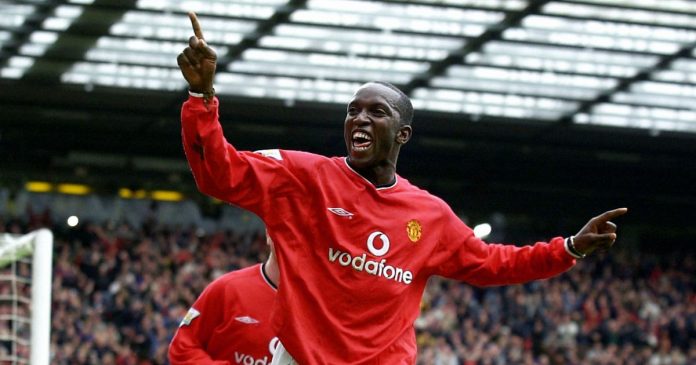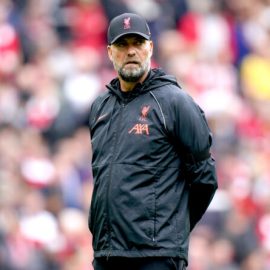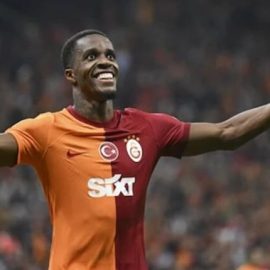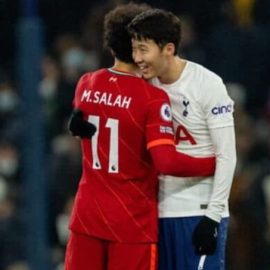It has been announced that Wolves have been handed a symbolic £25,000 suspended fine for breaching Premier League rule E20 against Manchester United at Old Trafford on the 15th of December.
The punishment relates to Wolves manager Mick McCarthy’s decision to name a team of entirely different outfield personnel from the club’s previous fixture.
Premier League Rule E20 states:
“In every League Match each participating Club shall field a full strength team”
On face value this seems a simple, logical rule to ensure fair play and equality in the league, reducing the risk of bias or more sinister temptations such as match fixing.
However the action taken against Wolves highlights the inadequacies of the rule, questioning how such a subjective factor such as team strength can be effectively measured to allow fair and effective enforcement?
There is no doubt that Mick McCarthy did not give any consideration when naming his side to the implications to any other club than his own, or allow himself to be swayed by any deliberate or subconscious bias towards the current league champions.
A more plausible rationale is that after using his vast experience and knowledge he determined that the chances of securing an away result against the league champions was remote and that it made practical sense to rest players in preparation for another day.
This hypothesis is supported by the aggregated bookmaker odds for the fixture before the teams were announced, a draw was quoted at 6/1 with a shock away win considered 3 times less likely at a whopping 18/1.
Despite the dismay of some fans and the league ruling, at what point does such interference become justified and whose responsibility is it to decide what constitutes a weakened side?
Analysis of the team sheet masks the real issue to come to light from the leagues actions. If the manager of a club deems that the team from a previous game is not appropriate for the next fixture and their selection is in the best interests of their team, why should they fear the wrath of the league?
Clubs across the league regularly rotate players throughout the season, what if one or two players are rotated? Rotation is for the most part a byword for the strategic weakening of a side based on the requirements of the forthcoming fixture. Pundits often surmise that effective rotation is essential for success during a demanding Premier League campaign.
Yet by the letter of the law the next time Wayne Rooney or Didier Drogba are strategically rested and replaced by an inferior international striker the FA will be forced to act.
This is without considering the debacle at the end of last season also involving Manchester United. In May 2009 in breach of rule E20 Alex Ferguson named a significantly weaker team for his club’s the last league game of the season receiving the full backing of the Premier Leagues Chief Executive Richard Scudamore in the process.
Despite the fixture having the potential to affect which team was relegated that day Manchester United were not charged for a breach of rule E20. Potentially because at the end of the day and to the relief of all parties Manchester United won the game. However had a wounded party such as Newcastle or Middlesbrough been relegated due to a Manchester United defeat would they have been entitled to seek recompense from Manchester United or the Premier League?
Also a Manchester United victory does not excuse Richard Scudamore or the league; they have displayed blatant hypocrisy in dealing with this matter. If it is ok for teams to prioritise different competitions and subsequently rest players, why are Wolves worthy of sanctions in this instance? Before Manchester United’s controversial fixture Scudamore went to great lengths to justify the selections of Alex Ferguson. His comments could have been construed as describing the rule as antiquated and out of touch with the changing face of English football. He described the rule to BBC’s Radio 5 Live as something which “predates the ‘squad system” that “exists in every competition”.
He reinforces the argument by stating “I’m not saying that rule cannot be broken, I’m sure it can: I’m sure it can if the team doesn’t try, if the team was just people you’d never heard of and it was all people drafted in on the day then there is a place for that rule to be applied.”
However the final nail in the coffin for the validity of the sanctions imposed on Wolves in the Premier League however is the admission in the same interview describing why it was acceptable for Manchester United not to field their strongest side; “You have to be realistic: they’ve got a squad – everyone says the strength of that squad is what won them the league – and therefore you can’t argue that they deploy the benefit of that squad in a game on Sunday”
The above ill-judged comments seem to exonerate Mick McCarthy, in December he did not field an inexperienced reserve side against Manchester United. The team he selected have so far made on average 10 Premier League appearances each this season, hardly supporting the notion of a team of acne afflicted teenage no-hopers implied by the leagues investigation.
The comments of the Chief Executive and the suspended sanctions agains Wolves are damaging to the league and allow further accusations of bias by the games highest authorities towards the bigger clubs. Many fans and clubs will be sceptical and speculate that if the shoe was on the other foot on December 15th then no charges would have been brought against Alex Ferguson or Manchester United.
However it is the opinion of this writer that when manager’s take on the mantle and responsibilities of Premier League management they earn the right to pick the team that they and not the Premier League board deems the most suitable for the task at hand.
If this argument fails and logic dictates that clubs must field their strongest available team for every league fixture can someone from the FA please explain who and how this decision is made? I think that Michael Mancienne and Matthew Hill would argue that they are both worthy of a place in the strongest central defensive partnership available to Wolves and only Mick McCarthy has the authority to disagree with them.
This begs the question, can anyone outside of a club truly be impartial and qualified enough to decide definitively what constitutes a sides strongest starting XI for any given fixture?
Even if the FA hired a panel of FA experts to decide a consensus will be difficult to reach and just as fallible as any managers choice. Let’s not forget the expert managerial nous that led to the selection of Ali Dia for Southampton or justified the signing of Francis Jeffers by Arsenal, Everton or any of his 5 other clubs.
There is however a fair but drastic solution to ensure that the rules, equality and integrity of the Premier League are upheld, managers clearly cannot be trusted to do what is best for their clubs now is the time to take back our game and take it out of the hands of our managers.
Originally I was going to suggest that teams will now be forced to seek pre-match approval of their starting line ups from the league, however on reflection I think that this does not go far enough.
To negate any risk managers should simply submit a list of available players and a preferred formation to the league an hour before kick off so that league officials can select the strongest team available.
This is the only logical conclusion to this predicament as there is no other way of determining whether two, five or eleven changes represent a weakened side, or whether every selection decision should be scrutinised.
In a time when clubs are beginning to feel the financial pinch a responsible ruling authority really cannot risk being forced to levy blatantly unnecessary financial sanctions on clubs that should know better, clubs must be controlled for their own protection.
An extreme and pedantic suggestion, but whilst the integrity of the game is paramount it is preposterous clubs should be punished for acting in good faith and the league should not interfere with team selection.
Whilst normally inconsistent actions and sanctions are lambasted in this instance further investigations should be discouraged and the Wolves example should not be the start of a trend. Whilst this opinion will attract many detractors clubs and managers must have their right to manage their affairs as they see fit protected. Whilst teams should not gift teams perceived as superior teams points, only in suspicious circumstances where foul play is suspected should investigation be warranted.
It cannot be determined whether Mick McCarthy was right to make so many changes against Manchester United. However if Wolves field a supposedly stronger team against Chelsea due to the timing of this suspended sanction, it will leave both sides open to accusations of meddling with the balance and equality of the league.
Follow Kristian Downer on Twitter.
Add Sportslens to your Google News Feed!






